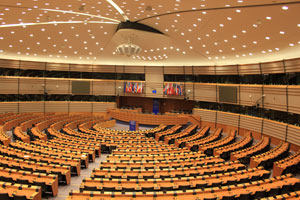The EU Commission has said that it does not intend to launch any new initiatives on indoor air quality during its current mandate.
The Commission was answering a question from the French member of the EU Parliament, Rachida Dati.
In a preamble to her question, Dati said that, in a communication of May 17, 2018, the Commission had made a detailed report on air quality in the EU, the measures already in place and the areas for improvement. However, there had been no mention of the situation regarding indoor air quality in the EU.
‘The issue of indoor air quality is still neglected in comparison to outdoor air quality, although indoor air can often be more polluted,’ she said. ‘This is the result of many factors, such as prolonged exposure to harmful products or persistent humidity.
‘The deterioration in the quality of indoor air has become a public health concern. Symptoms may range from allergies to more severe conditions, such as cancers resulting from prolonged exposure to these pollutants. ‘This issue is all the more important as we spend more than 80 percent of our time in enclosed spaces.
‘Does the Commission intend to take initiatives and propose concrete measures to tackle this public health problem?’ Dati asked.
In reply, the Commission said that in relation to specific chemicals with a detrimental effect on indoor air quality, the REACH (Registration, Evaluation, Authorisation and Restriction of Chemicals) Regulation could prohibit the placing on the market and use of chemicals that posed an unacceptable risk to human health. ‘Some substances have already been banned such as the ammonium salts released from cellulose wadding insulation materials used in buildings and four phthalates due to risk to consumers through inhalation of air and dust in indoor environments,’ it said.
‘The presence of formaldehyde in a range of textile products has also been restricted under REACH. In addition, in 2017 the Commission has requested the European Chemicals Agency to assess the risk of formaldehyde released from articles and mixtures for consumer uses, with a view to restrict uses of formaldehyde that may pose a risk.
‘The Council Recommendation on smoke-free environments has provisions for protecting the public from exposure to second-hand tobacco smoke, particularly to reduce exposure amongst children and adolescents. The Commission published a staff-working document on implementation of the Recommendation in 2013 and continues monitoring the implementation, functioning and impacts of measures outlined in the Recommendation.
‘The Commission does not intend to launch any new initiatives regarding indoor air quality during the current mandate.’











